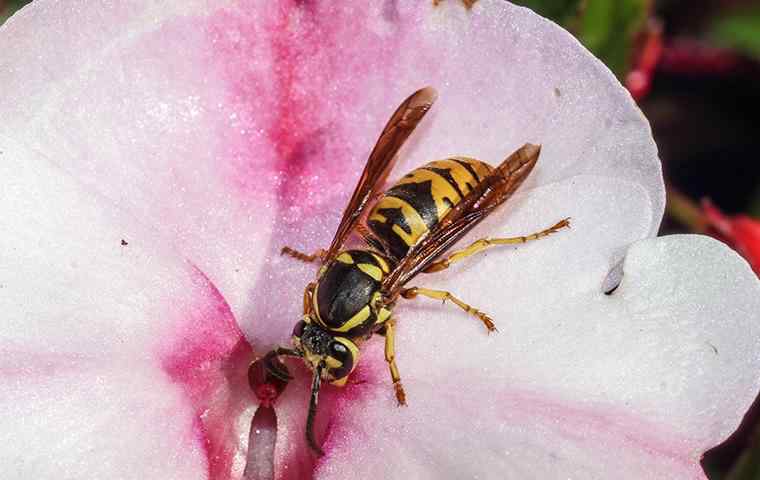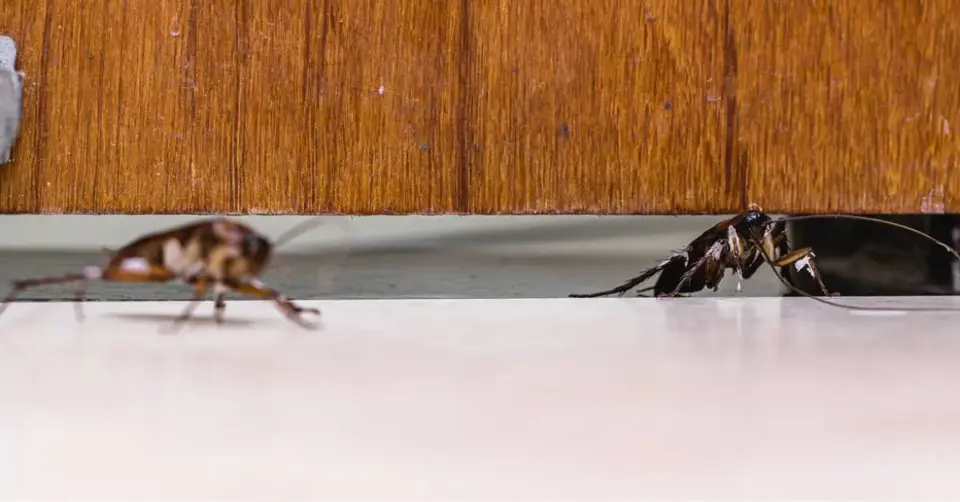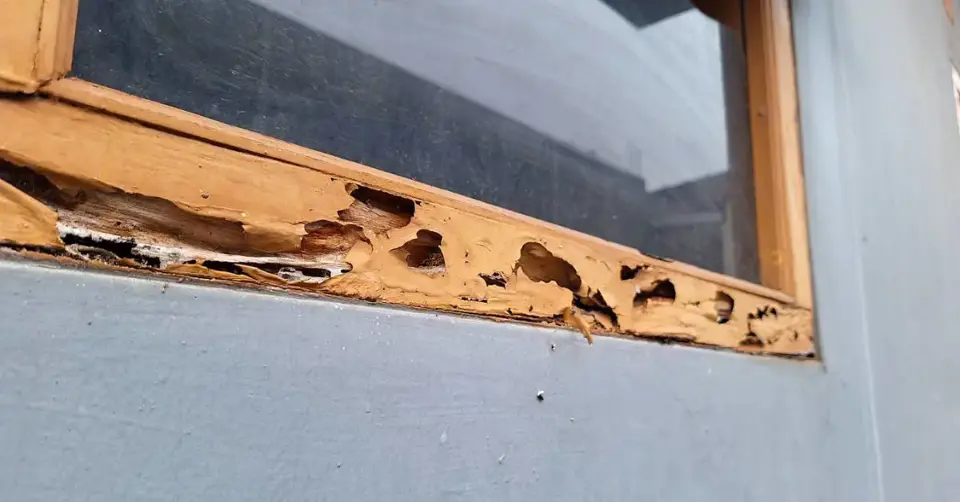

Stinging Insects
What Are Stinging Insects
Stinging insects like paper wasps and yellow jackets are those insects that use a stinger to defend themselves. Both paper wasps and yellow jackets are eco-important because they feed on other smaller insects and garden pests, helping to control their populations. They are also responsible for a small amount of pollination.
The paper wasp is a common species of wasp. They have a pinched waist and long thin legs that dangle below their bodies when flying. Their body is black or brown with yellow or orange markings. Their wings are a grayish color.
Yellow jackets are a type of wasp that has a segmented, hairless body and a thin waist. Their body has a well-defined yellow and black striped pattern. When at rest, their wings fold against their body.
Stinging Insect Frequently Asked Questions (FAQs)

Are Stinging Insects Dangerous?
Stinging insects are dangerous pests. The venom that stinging insects possess is strong enough to trigger severe allergic reactions and sometimes even anaphylaxis in some people. The severity of the reaction will vary from person to person. Not only are there health risks associated with their stings, but the sting itself is very painful and usually results in a red swelling that can last for several days.
Why Do I Have a Stinging Insect Problem?
If your Dallas property has a suitable area for stinging insects to nest that is close to food sources, it could become home to these pests. Stinging insects forage for food in gardens, trash cans, compost bins, and areas of dense vegetation. Clogged gutters and leaking hoses and fixtures provide them with water. Stinging insects tend to be most active during the second half of the summer season and early fall when colonies are at their largest and when workers are gathering food for the overwintering queens. Stinging insects like yellow jackets love to feed on proteins and are common invaders at outdoor events and outdoor eating areas.
Where Will I Find Stinging Insects?
Where a stinging insect decides to nest is species-specific. In general, stinging insects are outdoor pests, but sometimes take advantage of an opening in a home or other building and will build a nest in wall voids, attics, and rafters.
Yellow jackets build their nests in the ground or secluded places like between rocks, under decks, in woodpiles, or attics. Paper wasps place their upside-down umbrella-shaped nests up off the ground. Their nests hang from tree branches, in shrubs, under roof eaves, rafters, and the tops of door frames.
How Do I Get Rid of Stinging Insects?
Locally owned and family-operated, All-Safe Pest & Termite is the best choice to get rid of stinging insects from your home or business. We offer fast response times and peace of mind knowing that your pest problems will be solved, and they won’t return. Our experienced pest professionals provide top-quality pest control services using the latest and most effective products to eliminate stinging insects from Dallas properties. Discover why your neighbors choose All-Safe Pest & Termite for their pest control needs. Give us a call today!
How Can I Prevent Stinging Insects in the Future?
Prevent problems with stinging insects by partnering with All-Safe Pest & Termite and by implementing the following prevention tips:
- Repair holes along the roofline.
- Repair roof damage.
- Place tight-fitting caps on chimneys.
- Cut tree branches back from the outside of your home.
- Outdoor trash cans and compost bins should have tight-fitting lids.
- Keep outdoor eating areas free of food debris.
- When eating outside, keep food covered.
- Keep gutters and downspouts free of debris.
- Fix leaky hoses and fixtures.
- Limit the number of flowering plants that you place near your foundation.

Get Your Free Estimate
$50 Off Your Initial Service When You Book Online!

How We Can Help You Our Services





.jpg.2601291047352.webp)
